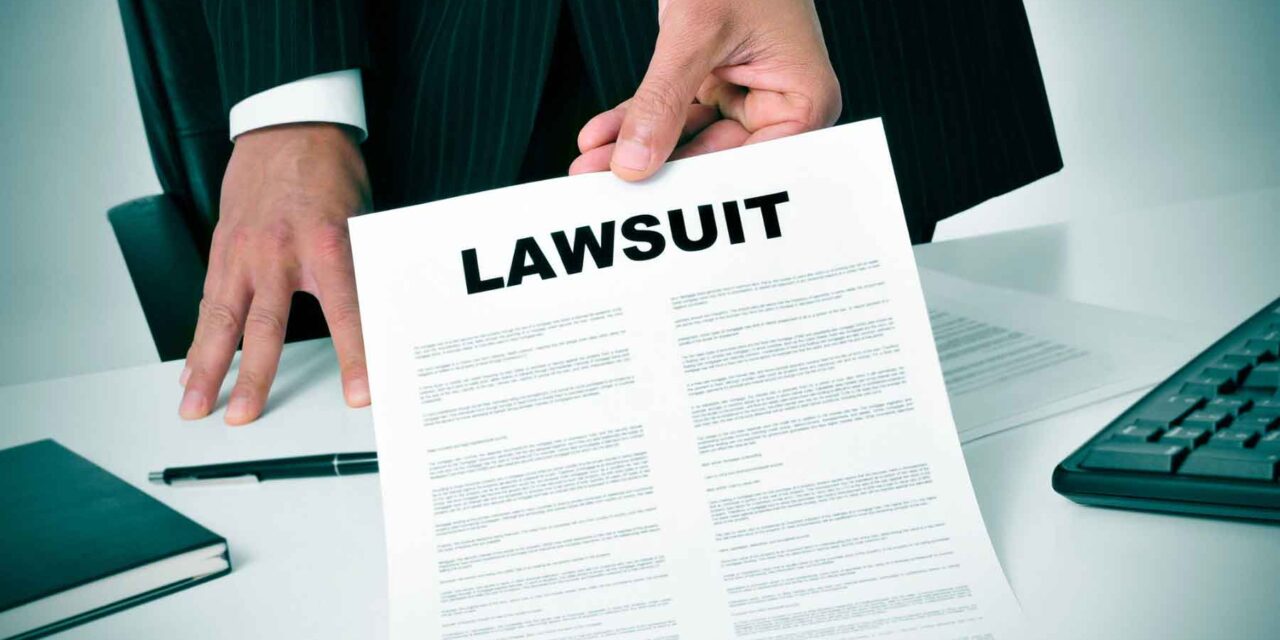Civil cases are legal disputes between individuals or organizations that do not involve criminal charges. In Dubai, civil cases are heard by the Dubai Courts, which are divided into three levels: Court of First Instance, Court of Appeal, and Court of Cassation. Civil cases can cover a wide range of issues, including but not limited to personal injury, breach of contract, property disputes, and debt collection.
One of the most common types of civil cases in Dubai is related to property disputes. These cases can arise between landlords and tenants or between co-owners of a property. They can involve disputes over rent, maintenance, or property ownership. Another common type of civil case is related to debt collection, where a creditor is seeking to recover money owed to them by a debtor.
It is important to note that before filing a civil case in Dubai, parties are required to try to resolve their dispute through mediation. Mediation is a process where a neutral third party helps the parties reach a mutually acceptable settlement. If mediation is unsuccessful, the parties can then proceed with filing a civil case. It is important to seek legal advice before initiating a civil case to ensure that all legal requirements are met and to understand the potential outcomes of the case.
Overview of Civil Cases in Dubai
Dubai’s legal system is based on the civil law system, which means that the courts rely on written laws and codes to make decisions. Civil cases in Dubai can be broadly classified into two types: commercial disputes and personal disputes.
Commercial disputes include disputes between companies, disputes between companies and individuals, and disputes between individuals involving commercial transactions. These types of disputes can include breach of contract, partnership disputes, and shareholder disputes. Personal disputes, on the other hand, involve disputes between individuals that are not related to commercial transactions. These types of disputes can include family law matters, labor disputes, and property disputes.
In Dubai, civil cases are heard by the civil courts. The Dubai Courts are the primary courts for civil cases, and they have jurisdiction over all civil disputes that arise within the emirate. The Dubai Courts are divided into three levels: First Instance Court, Appeal Court, and Cassation Court. The First Instance Court is the court of first instance, where civil cases are initially heard. The Appeal Court hears appeals from the First Instance Court, and the Cassation Court is the highest court in Dubai, which hears appeals from the Appeal Court.
When a civil case is filed in Dubai, the parties involved in the dispute are required to attend a preliminary hearing. At this hearing, the judge will determine whether the case is admissible and whether there is enough evidence to proceed with the case. If the case is admissible, the judge will set a date for the trial. During the trial, the parties will present their evidence and arguments, and the judge will make a decision based on the evidence presented.
Contract Disputes
Contract disputes are one of the most common types of civil cases in Dubai. These disputes arise when one party fails to fulfill their contractual obligations, resulting in financial losses for the other party. In Dubai, contract disputes are governed by Federal Law No. 5 of 1985 (the Civil Transactions Law).
The Civil Transactions Law stipulates that a contract must meet certain requirements to be considered valid, including mutual consent, a lawful purpose, and the capacity of the parties to enter into a contract. If any of these requirements are not met, the contract may be deemed void or unenforceable.
If a contract dispute arises, the parties are encouraged to try to resolve the dispute through negotiation or mediation before resorting to litigation. However, if these methods fail, the dispute may be taken to court.
When a contract dispute is brought to court, the judge will typically examine the terms of the contract and the actions of the parties to determine whether there has been a breach of contract. If the judge finds that there has been a breach, they may order the breaching party to pay damages to the other party to compensate for their losses.
It is important to note that the Civil Transactions Law distinguishes between different types of damages that may be awarded in a contract dispute. These include actual damages, which compensate the injured party for their actual losses, and moral damages, which compensate the injured party for any emotional distress or harm to their reputation that resulted from the breach of contract.
Real Estate Disputes
Real estate disputes are common in Dubai due to the rapid growth of the real estate sector. These disputes can arise between buyers and sellers, landlords and tenants, developers and contractors, and other parties involved in real estate transactions. Some of the most common types of real estate disputes in Dubai include:
- Disputes over property ownership and title
- Disputes over lease agreements and tenancy rights
- Disputes over construction contracts and defects
- Disputes over property management and maintenance
- Disputes over real estate brokerage and commission
In Dubai, real estate disputes are typically resolved through mediation or litigation. The Dubai Land Department- Amicable Settlement Centre (DLD-ASC) is a proficient authority in amicably settling disputes between parties without any costs. If mediation fails, parties can file a lawsuit with the Dubai Property Court, which has jurisdiction over all property disputes except those excluded pursuant to other laws or decrees.
The Dubai Property Court has three levels of Courts being First Instance, the Court of Appeal, and the Court of Cassation. If it is necessary to appeal to all levels, it could take up to two years or more before an enforceable judgment is issued. Therefore, parties involved in real estate disputes in Dubai are advised to seek legal counsel and explore alternative dispute resolution methods before resorting to litigation.
Labor Disputes
Labor disputes are one of the most common types of civil cases in Dubai. These disputes can arise between employees and employers over various issues related to employment, including wages, hours of work, unfair dismissal, and discrimination.
Employees who have a dispute with their employer can file a complaint with the Ministry of Human Resources and Emiratisation (MOHRE) or the Dubai Courts. The MOHRE has a specialized department called the Labor Dispute Resolution Section, which is responsible for resolving labor disputes through mediation or arbitration.
If mediation or arbitration fails to resolve the dispute, the case can be referred to the Dubai Courts. The Dubai Courts have a specialized division called the Labor Court, which is responsible for hearing labor disputes. The Labor Court has jurisdiction over disputes arising from employment contracts, including disputes over wages, end-of-service benefits, and unfair dismissal.
It is important to note that employees must follow a specific process to file a labor dispute case in Dubai. The process includes submitting a complaint to the MOHRE, attending a conciliation meeting, and filing a case with the Dubai Courts if the dispute is not resolved through conciliation.
If you are an employee who is facing a labor dispute in Dubai, it is important to seek legal advice from a qualified lawyer who specializes in labor law. A lawyer can help you understand your rights and options and can represent you in court if necessary.
Personal Injury Cases
Personal injury cases are common in Dubai courts and can be brought to a court depending on the type of accident and the extent of injuries suffered. These cases are governed by Federal Law Number 5 of 1985, also known as the UAE Civil Code. Article 282 of the legislation has provided the scope of personal injury claims.
There are different types of personal injury claims that can be filed in Dubai courts. These include physical and material damages, moral damages, damages for income loss, and damages for medical expenses. In some cases, the court may also award punitive damages as a form of punishment for the party at fault.
The amount of compensation awarded in personal injury cases varies depending on the severity of the injuries and the impact they have had on the victim’s life. The Dubai courts have been inconsistent in the level of damages awarded in personal injury cases, with some cases resulting in high compensation while others resulting in lower amounts.
It is important to note that personal injury cases in Dubai follow a fault-based system, which means that the party at fault is responsible for compensating the victim. Therefore, it is crucial to prove the negligence or fault of the other party in order to win a personal injury case in court.
If you have been involved in an accident and have suffered injuries, it is important to consult with a qualified lawyer who can guide you through the legal process and help you obtain the compensation you deserve.
Debt Collection Cases
Debt collection cases are a common type of civil case in Dubai. These cases involve a creditor seeking to recover money owed by a debtor. Debt collection cases can be initiated by individuals, businesses, or financial institutions.
The debt collection process in Dubai typically involves sending a demand letter to the debtor requesting payment. If the debtor fails to respond or refuses to pay, the creditor may file a civil case in court. The court will then issue a summons to the debtor, requiring them to appear in court and respond to the creditor’s claim.
During the court proceedings, the creditor will need to provide evidence to support their claim. This may include invoices, contracts, and other documentation related to the debt. The debtor will also have the opportunity to present their case and provide evidence to refute the creditor’s claim.
If the court finds in favor of the creditor, it may issue a judgment requiring the debtor to pay the outstanding debt. The court may also order the debtor to pay any additional costs and fees associated with the case.
It is important to note that there are specific laws and regulations governing debt collection in Dubai. Creditors must follow these laws and regulations to avoid violating the debtor’s rights. For example, creditors are prohibited from harassing or threatening debtors or using deceptive or misleading tactics to collect a debt.
In summary, debt collection cases are a common type of civil case in Dubai. Creditors can initiate these cases to recover money owed by a debtor. The court will require both parties to present evidence and will issue a judgment based on the merits of the case. Creditors must follow specific laws and regulations governing debt collection to avoid violating the debtor’s rights.
Conclusion
In conclusion, Dubai has a well-established legal system that handles a variety of civil cases. The types of civil cases that can be heard by the Dubai courts include commercial, civil, labor, real estate, and construction disputes.
It is important to note that the procedures for each type of case may differ, and it is essential to consult with a legal professional to ensure that you understand the process and your rights. Additionally, the court system in Dubai is divided into several levels, and the process can take time, so it is crucial to be patient and prepared for the duration of the case.
Overall, Dubai’s legal system is designed to provide a fair and just resolution to civil disputes. However, it is important to ensure that you have a thorough understanding of the process and your rights to ensure that you receive the best possible outcome.

























